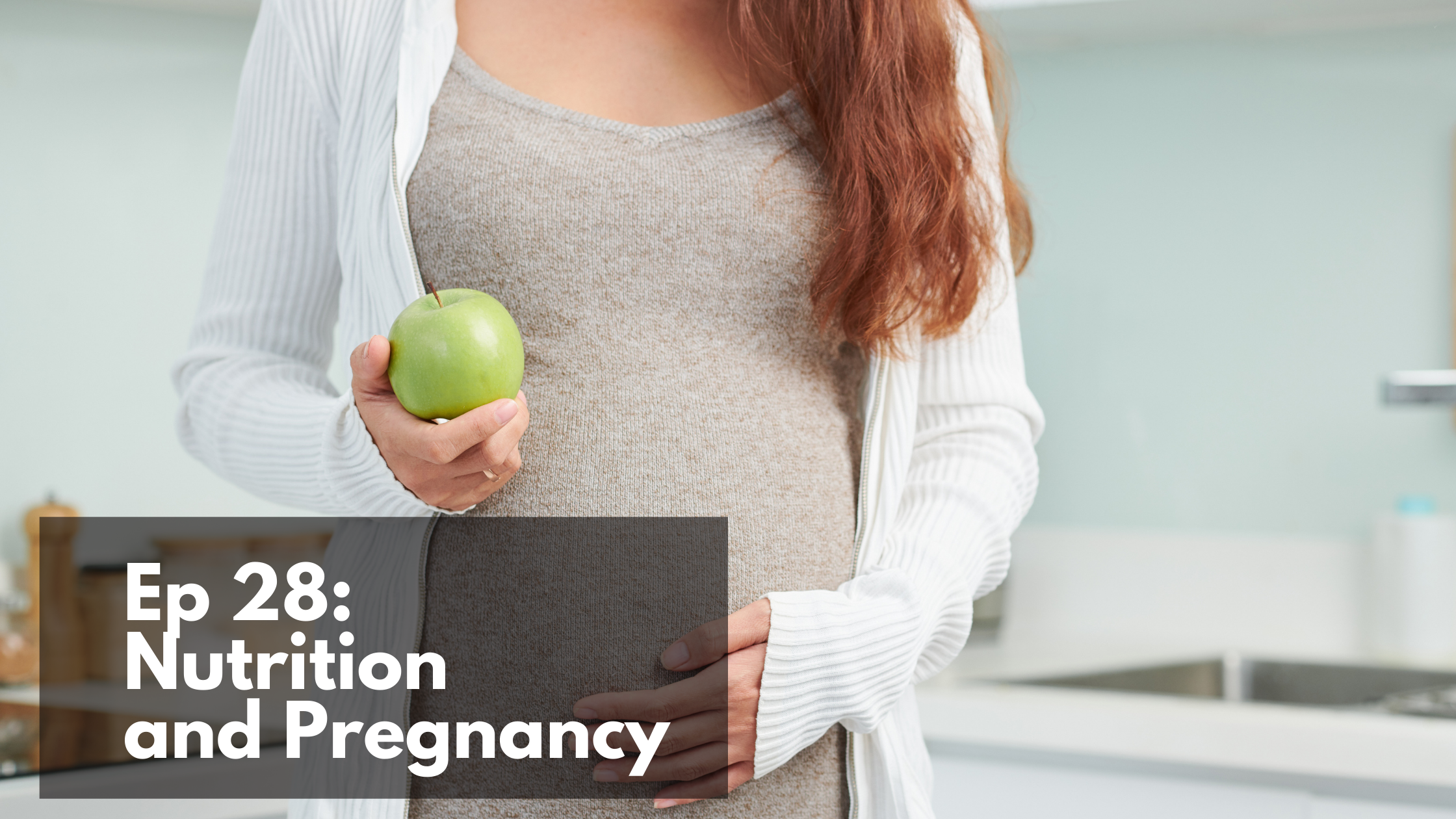Ep 27: Eating real food During PREGNANCY with Lily Nichols
Host: Cindy Hovington
Co-host and Producer: Marion Van Horn
Guest: Lily Nichols, registered dietitian/nutritionist, and certified diabetes educator
As a registered dietitian/nutritionist and certified diabetes educator, Lily has devoted her career to researching real food nutrition for pregnancy and gestational diabetes. Lily's clinical experience in the prenatal space and gestational diabetes (and uncomplicated pregnancies as well), combined with her research on nutrition in pregnancy has led her to question the status quo of the current prenatal nutrition guidelines. Research takes a long time to be translated to clinical practice, and even longer to be incorporated into public policy. Meanwhile, research on gestational nutrition is advancing at a faster pace and parents have the right to access the most updated science-based information to make decisions about their nutritional choices, especially if they differ from the conventional prenatal nutrition guidelines. Lily's work aims to fill the gap between research and official guidelines by keeping people informed of later discoveries.
Summary:
What does "eat well" during pregnancy really mean? What is the difference between micro and macronutrients, and how to make sure my body is getting everything it needs to make sure my baby is developing well? What are the best foods, and what to avoid, according to recent research? Can I trust the conventional prenatal guidelines when it comes to nutrition? I am getting enough protein in my prenatal diet? What is choline, and why is important for fetus development? What about food cravings, what do they mean (and should I listen to them)? What if I crave junk food? If I follow a vegetarian or vegan diet during pregnancy, will my baby get all the nutrients he/she needs? What is gestational diabetes and what can I do to prevent it? Joins us as we chat with Lily Nichols, a registered dietitian/nutritionist, and certified diabetes educator to learn more about nutrition before, during, and after pregnancy.
Key points:
Nutrients can be broken down into macro and micronutrients
Macronutrients (fat, carbohydrates, and protein) provide the calories the body uses to produce energy.
Micronutrients (vitamins, minerals, and other components) are important for metabolic health.
Many micronutrients come hand in hand with whole food sources of protein
Nutrients interact with each other in the body. For instance, the fat in milk helps in the absorption of the micronutrients that come in it.
The conventional guidelines for prenatal nutrition steer women away from eating important sources of micronutrients because of assumptions regarding macronutrients (fat, carbs and protein) that are not always justified.
Research shows that in the US, almost half of the pregnant women in the second trimester, and more than two-thirds of third-trimester mothers do not consume optimal amounts of protein
If some nutrients are missing in the first 1000 days (from conception to about age two), there are irreversible consequences for child development
Choline (a micronutrient) is as important for the prevention of neural tube defects and promoting brain development
Choline is found in plant and animal foods, but most concentrated in the latter (especially in egg yolks and liver).
Despite its importance in pregnancy nutrition, choline minimal intake is underestimated in the conventional prenatal nutrition guidelines.
When it comes to food, the least processed the best (e.g. whole grains instead of refined grains, whole milk rather than skim milk)
Nutrient levels decline in food over time.
Prefer food obtained as close to the source as possible, picked in season and delivered to your farmers market when possible, and consume it within a couple of days from purchase
Cravings during pregnancy can be a sign of a nutritional gap in the diet
Getting enough protein in breakfast helps to stabilize blood sugar levels and crave less carb during the day
A mindful eating approach to nutrition means taking the time to slow down and tune into the sign our body is sending from a point of curiosity
When having non-healthy food cravings, ask yourself why you are craving this food, and how you could replace it with a healthier alternative with a similar taste or texture
Avoiding overweight before pregnancy, staying active and being mindful in the consumption of sugar and rich-carb food are important factors to prevent gestational diabetes.
Pairing carbohydrate-rich food with protein-rich foods that naturally contain fat (e.g. apple with peanut butter or almond butter) put the pancreas under less stress and reduces the risk of developing gestational diabetes
Gestational diabetes is not always preventable (it depends on genetics too), so moms should not feel they did something wrong if they receive a diagnosis
Moms that chose a vegetarian or vegan diet during pregnancy need to be much more educated around nutrition, as it becomes more challenging to meet nutrient requirements when animal food sources are reduced or out of the picture
Some nutrients important for baby development are present in insufficient amounts (or absent) from plant food
Though often they can be obtained through supplements, it is unclear how effective they are in interacting together for optimal absorption
Take-home messages:
Nutrition during pregnancy does not need to be complicated
Focus on getting enough protein from a variety of foods, and getting "real food" whenever possible (produced locally, in season, that did not sit a long time on the shelf, and the least processed as possible)
Important foods to eat during pregnancy are eggs (yolk included!), liver, seafood (if raw, always from trustworthy sources), fruits and vegetables, and dairy products
Avoid eating "naked carbs" (carbohydrates on their own) to maintain a good blood sugar balance
Instead, try to pair carbs with a source of fat and/or protein.
Most of the recommendations for prenatal nutrition apply to a prenatal diet, postpartum and toddler nutrition as well
Additional Resources:
Lily's website: https://lilynicholsrdn.com/
Download the first chapter of Lily's book for free
Lily's blog posts mentioned in this episode
















